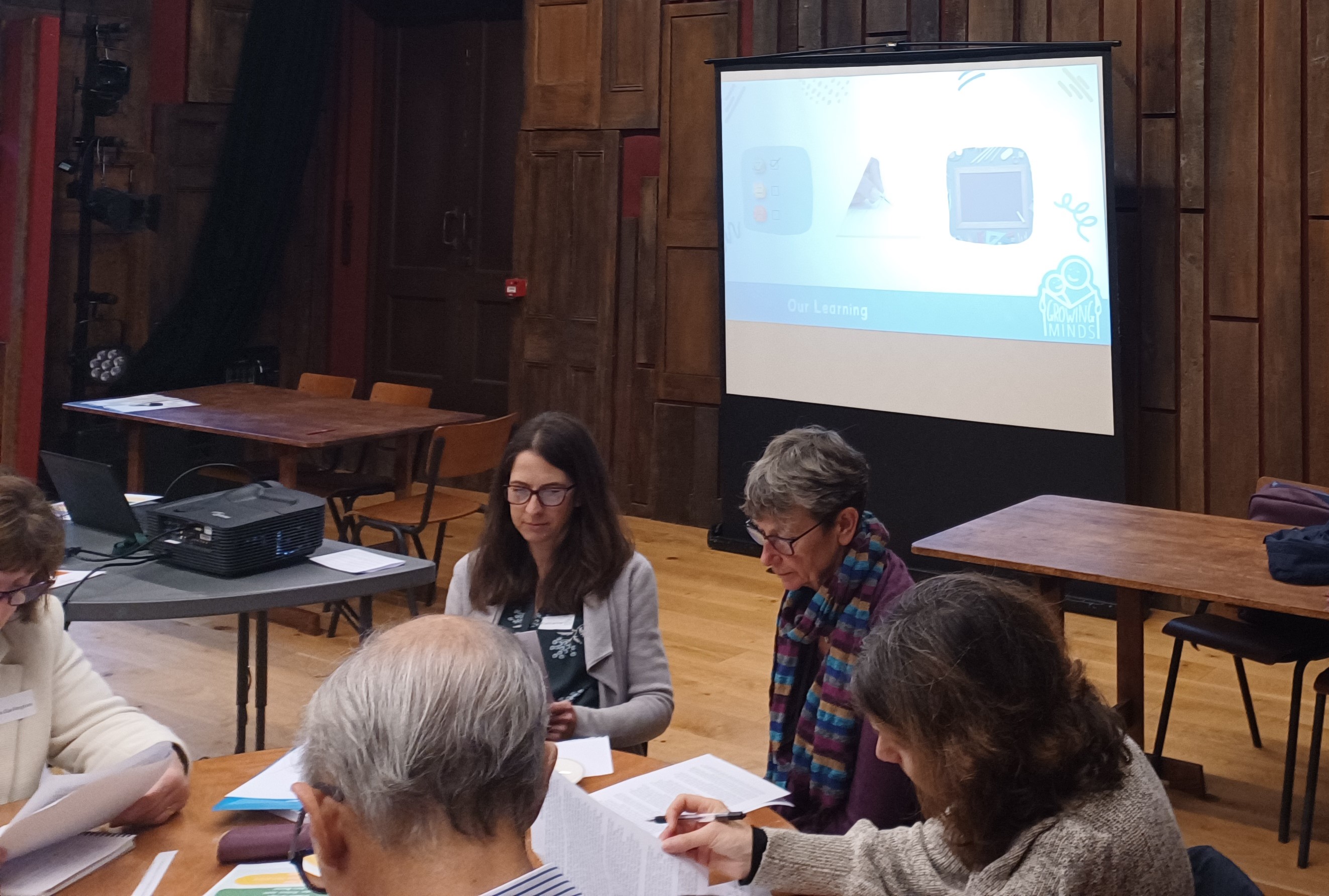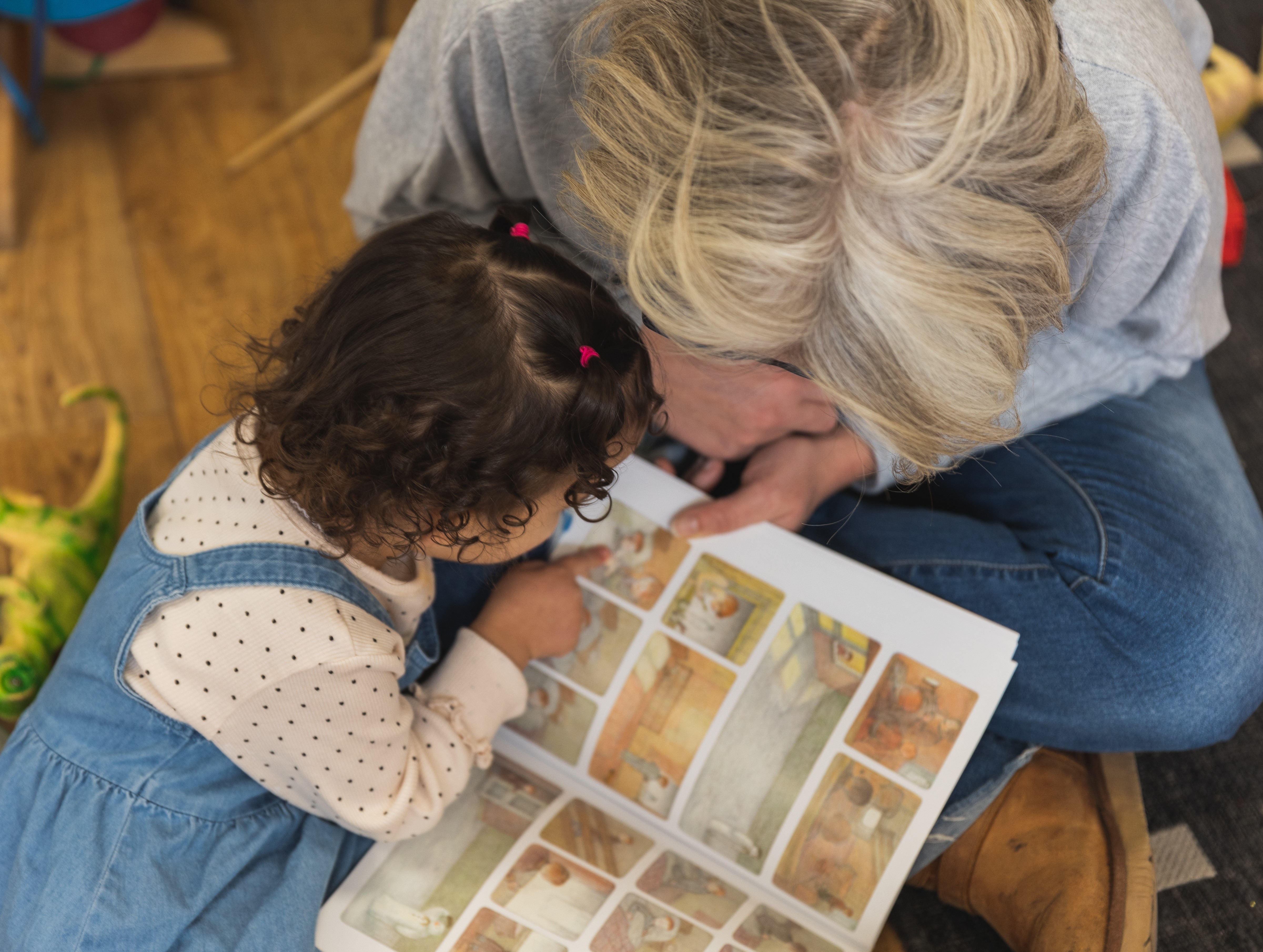Green
News: Remembering Sir Tim Brighouse - former Peeple Trustee
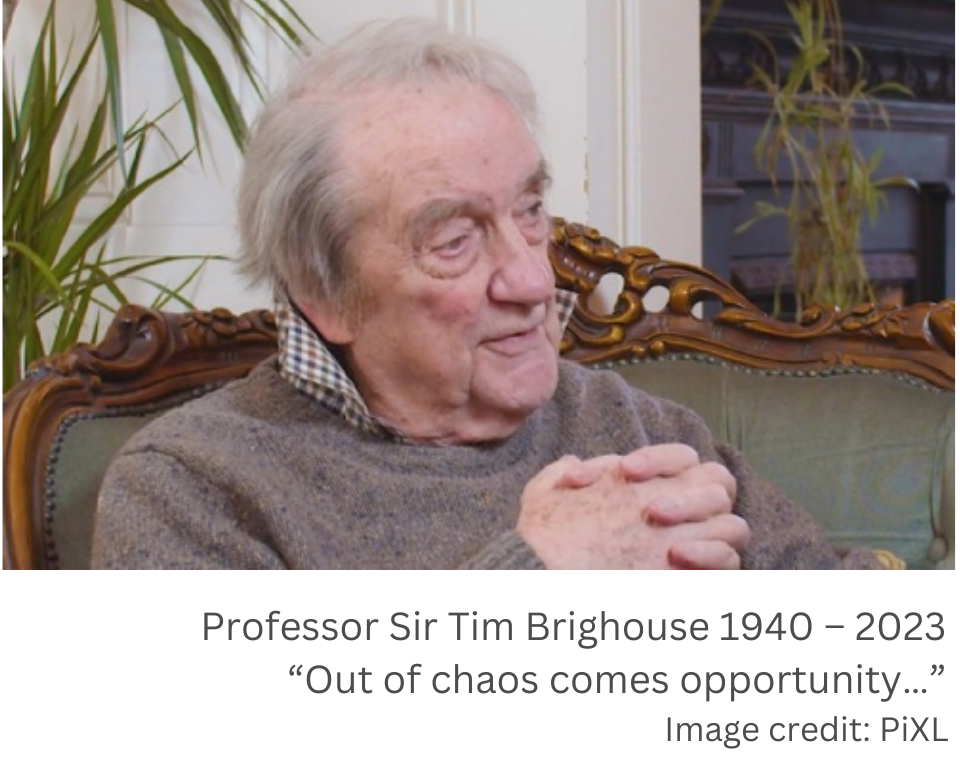 We were very sad to hear of the death of Professor Sir Tim Brighouse on 16 December 2023. Tim was one of the great minds behind Peeple, set up in 1995 with the audacious plan to improve education outcomes of children at secondary school, by working with their parents from birth. Mike O’Regan, our founder, recalls how Tim (then Oxfordshire’s Chief Education Officer) responded to the idea with his characteristic enthusiasm and supportive energy and helped give PEEP (our former name) its confident start.
We were very sad to hear of the death of Professor Sir Tim Brighouse on 16 December 2023. Tim was one of the great minds behind Peeple, set up in 1995 with the audacious plan to improve education outcomes of children at secondary school, by working with their parents from birth. Mike O’Regan, our founder, recalls how Tim (then Oxfordshire’s Chief Education Officer) responded to the idea with his characteristic enthusiasm and supportive energy and helped give PEEP (our former name) its confident start.
Tim went on to serve as a trustee until 2014. During this time, we benefitted from his kindness and warmth as well as his wisdom, extraordinary breadth of experience and, when needed, his firmness and authority. We were lucky to have him – clearly a feeling shared by (almost!) everyone he worked with or who enjoyed correspondence with him, judging by the personal and poignant comments shared recently in the press. I didn’t know whether to laugh or cry when I read this letter from a Nursery Teacher in the Guardian: “I once wrote to Tim in despair about the effect of some educational ‘reform’ on my nursery class. He replied by return post and advised me to collect all the relevant paperwork, set fire to it in the garden and dance around it. ‘It won't make any difference, but it might make you feel better’ he wrote. His letter certainly did.”
Sally Smith
Peeple CEO
News: Sir Tim Brighouse RIP - former Peeple Trustee
Feature box colour:
Side Quote Color:
Blog: Growing Minds - lessons learned and getting involved
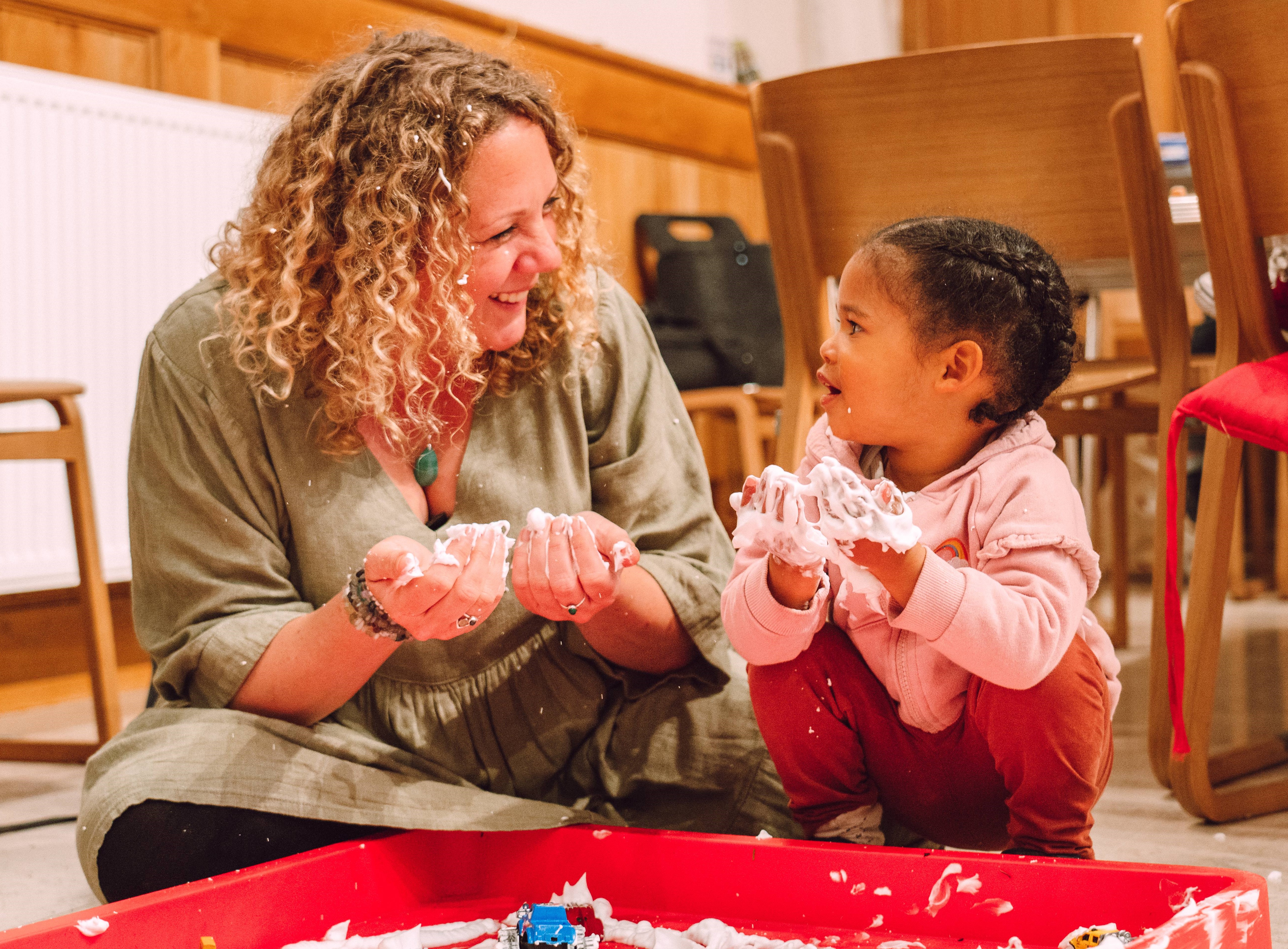
Our third Growing Minds Learning Event in November enabled us to reflect on the last few months - what we did, what changed within our communities, and what we learned - helping us to plan for the year ahead.
Growing Minds is a collaborative, community project that supports and improves young children’s development, school readiness and life chances. We do this by bringing together experienced organisations, local parents and carers, and tried-and-tested interventions. It is led by a partnership of third sector organisations - Peeple, Home-Start Oxford and the Berin Centre – working together in the Littlemore and Berinsfield areas of Oxford and south Oxfordshire.
We really appreciate the positive and thoughtful contributions from everyone who attended, and the generosity of our hosts The Story Museum in Oxford.
Read on – and if you’d like to commission, fund, signpost, find out more, or attend any of our Growing Minds local provision for families - then do get in touch: becky.young@peeple.org.uk.
Here are some of our successes and challenges:
We’re proud of our new 5-minute Growing Minds video, which provides an overview of the project for families and professionals. It captures the voices of partners, practitioners and parents, reflecting on the impact that Growing Minds has had on their lives. Do watch it if you have a few minutes!
Expanding our reach across the communities:
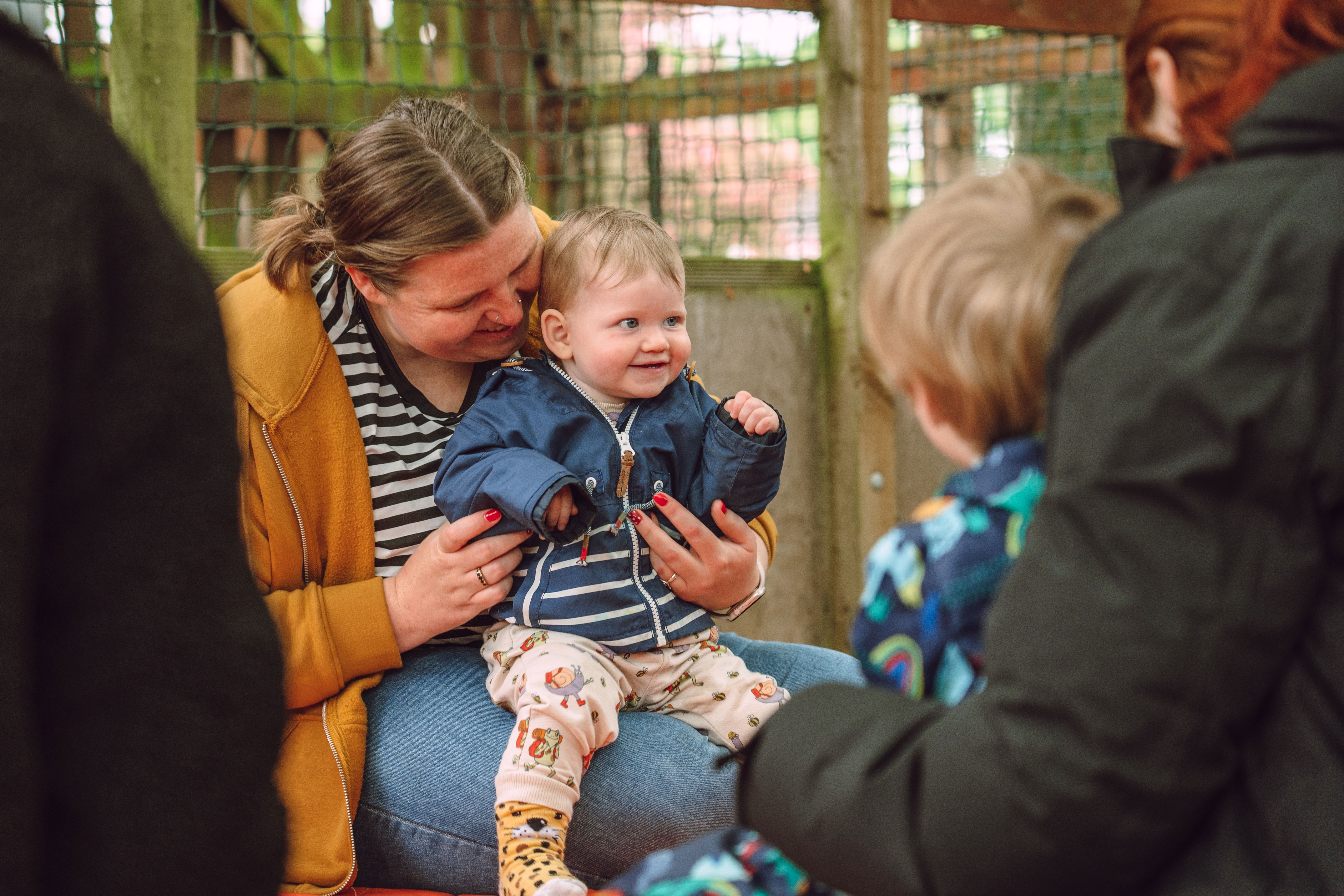 There are now over 500 children registered with Growing Minds. A variety of support is offered, based on families’ interests and needs, ranging from the Dolly Parton Imagination Library books that are posted free of charge to any family wanting to sign up, to Stay and Plays, groups and 1-to-1 sessions for parents and children. Stories shared by Growing Minds parents about their own experiences highlighted the value of this ‘progressive universalism’ approach. For some families, the initial contact about the Imagination Library books provides the first step into accessing other local services. As Sally Smith, Peeple CEO explained, the latest findings from the Learning Together Study show that the Peep Learning Together Programme improves outcomes for all children but has the greatest impact for those living in disadvantaged circumstances.
There are now over 500 children registered with Growing Minds. A variety of support is offered, based on families’ interests and needs, ranging from the Dolly Parton Imagination Library books that are posted free of charge to any family wanting to sign up, to Stay and Plays, groups and 1-to-1 sessions for parents and children. Stories shared by Growing Minds parents about their own experiences highlighted the value of this ‘progressive universalism’ approach. For some families, the initial contact about the Imagination Library books provides the first step into accessing other local services. As Sally Smith, Peeple CEO explained, the latest findings from the Learning Together Study show that the Peep Learning Together Programme improves outcomes for all children but has the greatest impact for those living in disadvantaged circumstances.
School and community links:
Katie Screaton, Executive Headteacher of John Henry Newman Academy, enthused us all with her passionate presentation on the impact that Growing Minds is having in Littlemore. Before it began, there was scarce community support for children under five in Littlemore, so it marks a significant transformation. She pointed out that Growing Minds is fostering a sense of community, diminishing isolation, and boosting parental confidence and enjoyment, helping more parents to see and value their role as educators.
Practitioners from the school and Growing Minds deliver a range of sessions with families, often combining topics from the Peep Learning Together Programme with a particular aspect of everyday life, all of which support children’s development and the home learning environment. Following conversations about cost of living issues, for example, the local St Mary and St Nicholas Church donated a number of slow cookers. These were given to families, who also attended a six-week course where parents and children had fun preparing dinner together (cowboy casserole, anyone?) then taking the food home to cook in their slow cooker.
Other groups include Nature Tots, a Special Educational Needs (SEN) parent support group, and Stay and Play sessions focusing on supporting school readiness. For the Growing Minds children who started in Reception this year (aged 4-5), Katie's initial observations were that they have all settled well, and are confident explorers of the Early Years Foundation Stage.
This is the first cohort of Growing Minds children to have started school. It’s exciting and we cannot wait to see the impact that Growing Minds has over the coming years, though we are cautious that this year group will have been most heavily affected by lockdowns and the lack of provision that was available during those periods. We are very fortunate to have such a community-focussed school on our doorstep, and we really appreciate the collaboration that has such a wide impact.
Impact stories from parents:
Gathering stories from families about their experiences is an important part of the project. Reading and discussing the stories in groups is always a popular part of the Learning Day. We pulled together common themes, which included the project being as meaningful for parents as it was for children, delivery being done with families not to them, reduced social isolation and easy-to-access support. Statutory services and professionals are stretched to the limit, often accompanied by long waiting lists, and finding an understanding and friendly face was always appreciated by families.
Below you can see a short version of one of the stories.
Local partnership work:
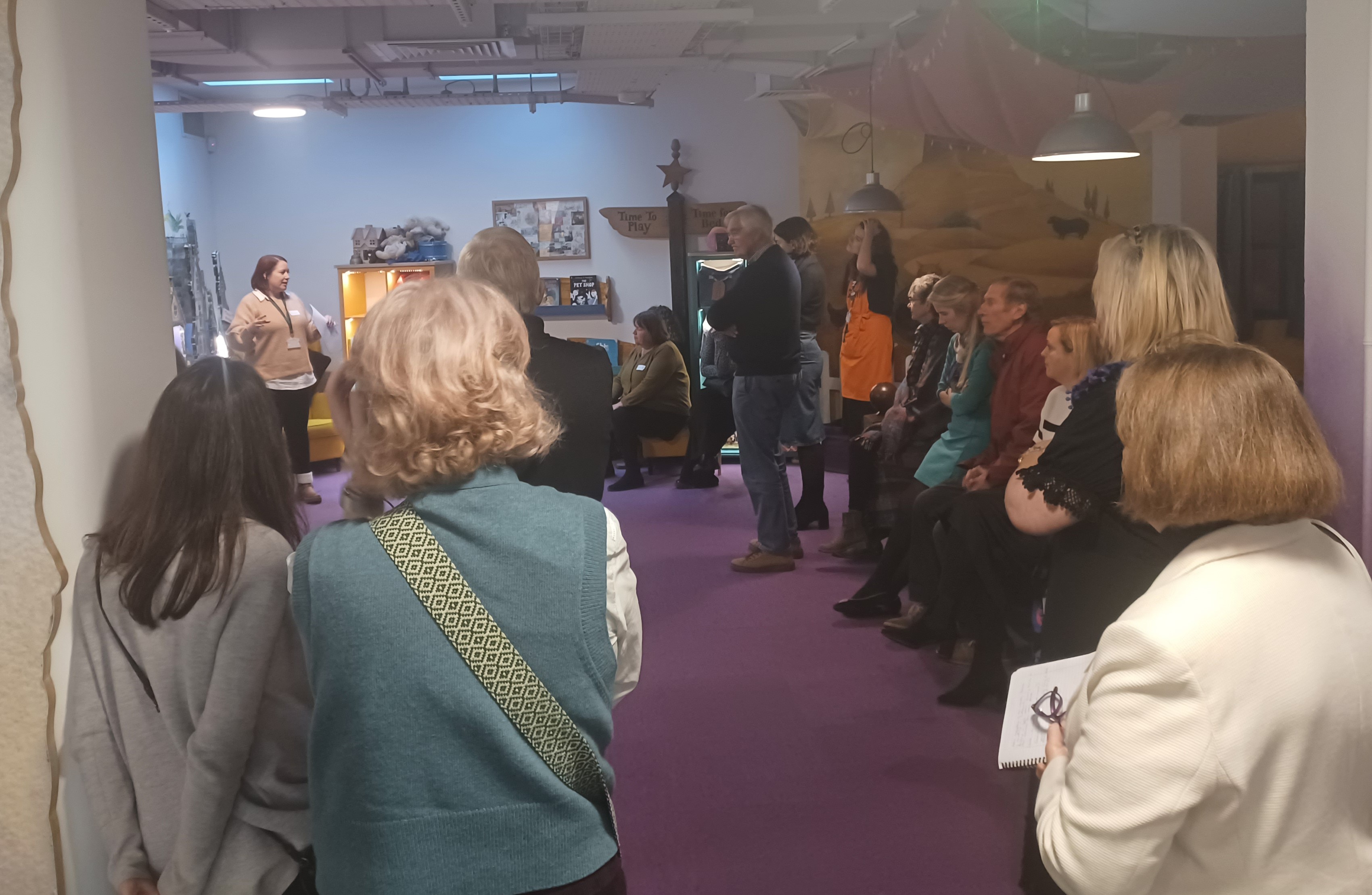 Staff from the The Story Museum took us into their small world area to deliver a section on their community outreach work with Growing Minds. After exploring the room, Victoria Jones, the Museum’s EYFS Co‑ordinator, gave us a captivating demonstration of their storytelling approach and the profound impact that it can have on people of all ages. Story Museum staff inspired families during a dozen Stay and Play sessions in Littlemore – our work shares numerous similarities, and it was a great opportunity to work together. Their sessions culminated in a visit by families to the Story Museum in early November, which went down a treat (and is well worth a visit!).
Staff from the The Story Museum took us into their small world area to deliver a section on their community outreach work with Growing Minds. After exploring the room, Victoria Jones, the Museum’s EYFS Co‑ordinator, gave us a captivating demonstration of their storytelling approach and the profound impact that it can have on people of all ages. Story Museum staff inspired families during a dozen Stay and Play sessions in Littlemore – our work shares numerous similarities, and it was a great opportunity to work together. Their sessions culminated in a visit by families to the Story Museum in early November, which went down a treat (and is well worth a visit!).
Lessons learned:
We reflected on what we had learned over the past few months, and our progress on the action plan from our independent evaluation. For example:
- We initially relied heavily on statutory services for recruitment or registrations of families. These referrals from birth registrars are very important as they allow families to hear about the local provision from very early in their child’s life. However, using a more mixed approach through social media, local advertising, schools, nurseries and other community groups means that our registration rate has significantly improved.
- Following feedback from families about the times of our Peep groups, we swapped the toddler group to the morning and babies to the afternoon, and attendance has improved.
- We piloted a community Transition group in the summer for Littlemore families whose children would be starting school outside the local area. This was less well attended than most of our groups, partly for logistical reasons – more than half those invited said they worked during the week. However, we’d also had less interaction with these families when children were younger, due to Covid. This really speaks to the power of the earliest contact with families, building relationships and being able to support them sensitively from when their babies are small. Families were still interested though, with several saying they would have found this type of course useful before starting nursery as well as school. We were still able to offer every family support, and an ideas mat of appropriate activities in preparation for school transition. We will reflect further on our learning in the design of these sessions later in this academic year.
Partnership working and future opportunities:
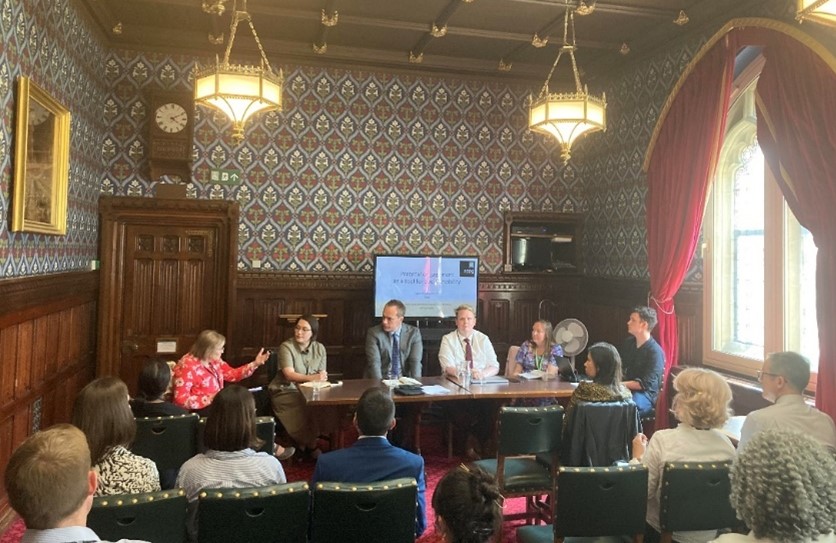 We were invited by the Sutton Trust to speak about Growing Minds at the Social Mobility All Party Parliamentary Group (APPG) at the House of Commons in July. The theme was parental engagement as a tool for social mobility, and it was an honour to share our learning around engaging with parents as early as possible in children’s lives.
We were invited by the Sutton Trust to speak about Growing Minds at the Social Mobility All Party Parliamentary Group (APPG) at the House of Commons in July. The theme was parental engagement as a tool for social mobility, and it was an honour to share our learning around engaging with parents as early as possible in children’s lives.- Talking and working with other organisations to learn from each other is an important part of Growing Minds, both locally and further afield. Over the past few months we’ve enjoyed collaborating with organisations such as Oxford Inclusive Economy Partnership (OIEP), Oxford University's Brain Story and Thrive at Five in Stoke-on-Trent.
What next? (how we can help you and you can help us)
We hope you agree that our services are valuable – but they need to be funded. We still need some funding for this financial year (2023/24) and the next. There are (as yet) no government-funded Family Hubs in Oxfordshire.
Do get in touch:
- if you are, or you have any contact with, a local commissioner of family support services or other potential funders (individuals, companies or charitable trusts), who may like to find out more about what we do, or to come along to our next event.
- if you’re a parent, carer or professional who lives or works in Littlemore or Berinsfield, and you want to find out more or come along to one of our sessions, or signpost other local families.
- if you’re part of a like-minded project elsewhere and would like to share ideas.
Becky Young, Growing Minds Manager - email becky.young@peeple.org.uk or tel 01865 395145
Parent story (short version):
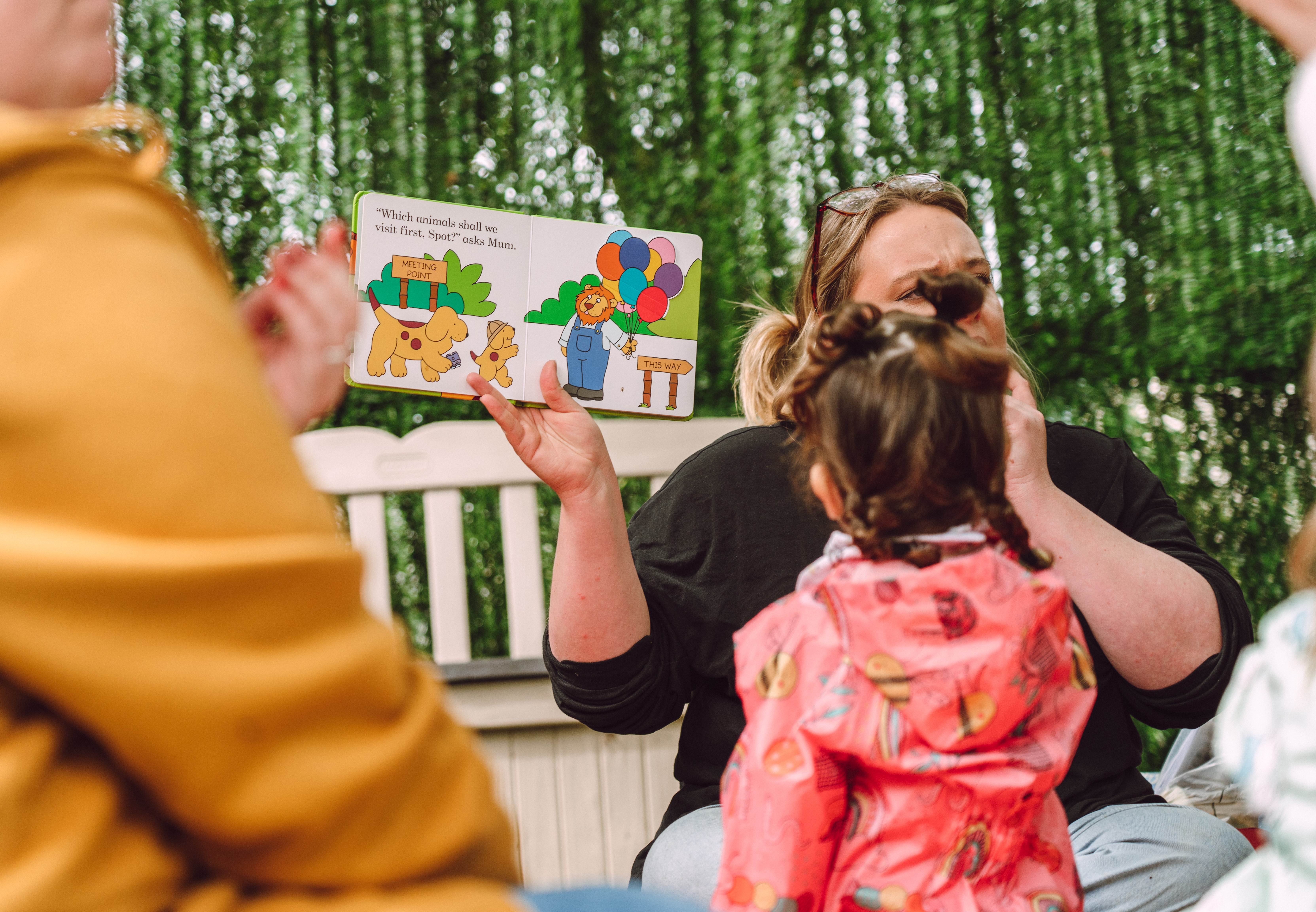 “I was a bit nervous the first time but everyone at Growing Minds and the Berin Centre was really welcoming. The first group I came to was a baby group. Each week is different, you learn so much and it's to improve your knowledge of certain things so you can enhance your child's life for the better. It was important for me to not just sit in the house with my little girl, it gets us out and interacting with people that we normally wouldn't be.
“I was a bit nervous the first time but everyone at Growing Minds and the Berin Centre was really welcoming. The first group I came to was a baby group. Each week is different, you learn so much and it's to improve your knowledge of certain things so you can enhance your child's life for the better. It was important for me to not just sit in the house with my little girl, it gets us out and interacting with people that we normally wouldn't be.
There's quite a lot of us who have similar ages of children, it's really good to see the same people every week, it helps us build the relationships. It's amazing, the other parents and their kids – it was really nice and friendly but if you're having a bad day like you can just tell someone and they'll try and help you. There won’t be any judgement which is really good because my life is chaos.
In the groups, we learn things to do with a child. There was something to do with the brain and I can see the image, that's really stuck with me. I'm quite a visual person so that really helped me. One week we also did about routines. I have difficulty with some of it and it was really reassuring that everyone goes through it which is a relief, and you can talk about it.
I also liked the making marks one that we did which was basically just like messy play. She didn't really get too dirty which was good for me, but she's done it since and she loves it, then I think oh I could do water play at home or I can do this at home - it's just fun.
This is somewhere that you're accepted and listened to. I just think how amazing spaces are like this. I've always wanted a child, I will do anything for her. I just want her to have the best life and coming here definitely helped that and it helps me as well. Parenting is hard, especially when social media says ‘do this’, ‘don't do this’ and it's so conflicting, you just want the best for you and your child. Mum guilt is so difficult but here they encourage you. I feel more connected with the other parents.”
Blog: Growing Minds - lessons learned about collaborative community support
Feature box colour:
"I just want her to have the best life and coming here definitely helped that and it helps me as well... Mum guilt is so difficult but here they encourage you. I feel more connected with the other parents.”
Read one parent's story below.
Find out more about getting involved with Growing Minds, as a parent, practitioner, commissioner or funder:
email becky.young@peeple.org.uk or tel 01865 395145
Side Quote Color:
blog: peep delivery in a post-covid world
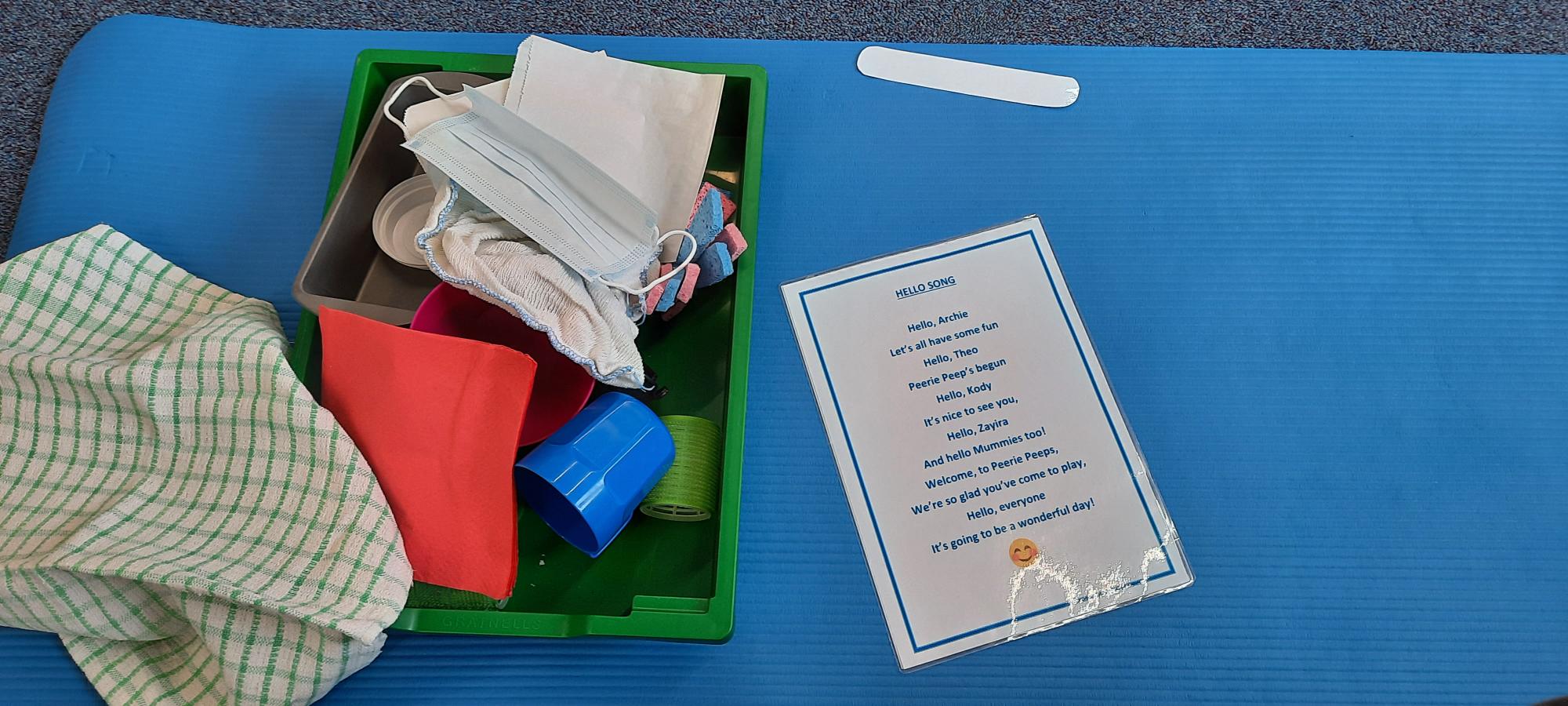 During the Covid pandemic, delivery of Peep sessions switched to virtual as practitioners committed to finding new ways to reach parents who needed support. This way of delivery was very successful, with high levels of engagement reported. As restrictions have eased, some practitioners have flagged up anxieties, from themselves and families, about returning to face to face sessions. A common question has been about what measures to put in place to encourage group cohesion whilst still respecting personal feelings surrounding Covid.
During the Covid pandemic, delivery of Peep sessions switched to virtual as practitioners committed to finding new ways to reach parents who needed support. This way of delivery was very successful, with high levels of engagement reported. As restrictions have eased, some practitioners have flagged up anxieties, from themselves and families, about returning to face to face sessions. A common question has been about what measures to put in place to encourage group cohesion whilst still respecting personal feelings surrounding Covid.
Becky Robertson is a Family Support Worker at the Shetland Family Centre and moved back to face to face sessions in May 2021, before most of the country. Here is her experience:
I work in a family centre which is not registered with the Care Inspectorate; it doesn’t come under education or schools legislation either – we are a bit of an anomaly really! It means that our parent groups are considered to be under the ‘support group’ or ‘parent and toddler group’ umbrella, which enabled us to deliver in-person from May 2021. This was fantastic, but restrictions were still quite tight in some respects and anxieties around Covid were very high for staff and families.
We started with a pilot group of just three families and two workers, which still felt like loads of people to have in one room at that stage! According to the restrictions relating to social distancing (then 2 metres), the room we were using could hold a maximum of eight adults, but even that amount felt really strange at first.
We adopted some subtle tools to social distancing, without it feeling awkward, and found these really helped to make people feel more relaxed in the ‘new normal’:
Invested in yoga mats for the families to sit on
At 1.5m long it meant that once the mats were spaced out on the floor people were distanced. We also used name labels on the mats instead of on people, which meant a ‘safe zone’ for each family, and everyone stuck to their own mat.
Individual treasure baskets for each family and used washable shopping bags for ‘What’s in the bag?’
Having the individual trays of toys meant everything was washed after each session and we kept the same colour for each family each week; giving families a sense of security.
Laminated song lyrics
These were wiped down in-between sessions. We even did our best to chant, instead of sing, to reduce concerns for all!
Individual reusable travel cups
I saw this in another Peep group and it worked really well. Parents and carers could decorate them and write their names and preferences and we would have a cuppa ready when they arrived each week - they could also take them home at the end of the block. It proved a great option for us as facilitators, not only because it cut out the anxieties around mug swapping, sharing spoons, etc. but also because we could have it ready in advance.
Small, individual snacks in decorated Tupperware tubs
We got the parents to write on any allergies and filled them with fruit/veg for the groups which clashed with snack time.
As well as these new ideas, we ensured that all rules around Covid were touched upon at the start of the session in the normal ‘housekeeping’ introduction, and hand sanitiser was available at various points around the room.
Now that we are living in a world of no masks, testing, or distancing that all seems pretty strict and historic… but some of the approaches are continuing into the new blocks which started in May:
We still use individual mats for the families, and label them, instead of the people. It means less anxiety for families as they arrive as they don’t have to choose a space, know exactly where they are going and know what to expect. It also means that names are visible at all times; alleviating concerns around forgetting a name or a badge being obscured right in the middle of the 'Hello' song. We continue to work with small numbers, trying to facilitate more families by offering short blocks, as it still feels more comfortable to us at this time, but we now work on the principle of recruiting 5-6 families per block.
My advice would always be to start small and see how it feels and progresses from there; it's always going to be easier once the first block is done and each block will flag up things that worked well, and things that didn’t! Don’t overthink it, remember that the families have no idea if you’re ‘doing it right’ or not; plus they love it when you make a mistake or two - it makes them feel less pressured to be perfect themselves!
For Peep practitioners, head to the members area here for delivery support resources.
Blog: Peep delivery post-covid
Feature box colour:
Side Quote Color:
Blog: What does school readiness look like?
School readiness is always a hot topic at this time of year, but especially now as the early years Covid cohort starts to transition into primary school. Many of these children will have spent a large proportion of their childhood in lockdown, missing out on the opportunity to socialise with their peers and develop key skills. A recent survey conducted by YouGov suggested that half of all children are not ready to start school, and in some settings that has risen to 90%.
But what does being 'school ready' actually mean? A few years ago Ofsted (who inspect schools and children's services in England) released a list of skills that would be helpful for children to have before starting school - and parents may be surprised to learn that phonics, writing and maths are not on the list.
Here are some of the skills that are useful to practise with your child in everyday life:
I can sit still and listen
Schools don't expect children to sit still and listen for the whole day - that's hard even for grown ups - but developing listening skills is essential to communication, play, keeping safe and developing thinking and concentration skills. Model good listening with your child, chat with them and really listen to their responses. In order to become a good listener, children need to know what it feels like to be listened to.
I am aware of other children
Relationships with the people around us are so important and children learn a lot about appropriate behaviour and 'rules' which can help them get on with others. Children learn from everyone! Watch your child next time they play with others and talk to them about how they interact with their friends. Relationships are at the heart of leaning, whether it's in the playground or in the classroom.
I can talk in sentences and I can speak to an adult to ask for help
Talking helps children to develop their thinking and builds confidence - children get better at it when they have somebody who joins in, talks, listens and tries to understand. This confidence will seep into other areas: asking for help, communicating with friends and expanding language.
I am potty trained and can go to the toilet
Everyday activities encourage children to learn how to look after themselves. Routines such as using the toilet, wiping, flushing, pulling pants up and washing hands is a sequence which can be repeated again and again. This in turn grows independence, and will save you - and school staff - a lot of time in the bathroom. If there is a part of the sequence that a child is struggling with, such as remembering to flush, it's worth breaking the routine down and focusing efforts on helping them master that particular part.
I can recognise my own name
Names are a core part of our identity and using children's names in a positive way builds confidence and self esteem. Help children to recognise their own name by celebrating it! Make name placemats for dinner or write it in bubble writing and get them to decorate it - the added bonus is that having fun together with your child's name shows them that they are important.
I can open and enjoy a book
Have you ever had to read your child's favourite book over and over again? This familiarity with language, characters and pictures breeds confidence and encourages children to become 'readers' themselves. Knowing what happens next, joining in with the re-telling (made up or from memory, rather than reading the text themselves) and being able to name familiar things in pictures gives children a real sense of achievement. It's an important building block in learning to read and will spur them on to open, and enjoy, new books as well as old favourites.
I can understand the word 'No' and the borders it sets for behaviour, and I understand the word 'stop' and that such a phrase might be used to prevent danger
Children sometimes struggle to put into words what they are feeling, so their feelings come out in their behaviour. Support and encouragement is important, as is staying safe. Talk to your child about how words such as 'stop' may be used to keep them out of danger - explore songs and stories which will communicate this in a positive way.
I can take off my own coat and I can put on my own shoes
Life skills such as taking off a coat and putting on shoes are often the first big steps towards independence for young children. We do these everyday tasks without thinking but children need us to break it down into chunks for them to be able to grasp them. Time and patience are needed here, and maybe a little bit of fun too. Have you ever seen the coat flip? Look it up, it's genius!
Making these skills a part of daily life will help with the transition into school, and the familiarity of these tasks will underpin confidence at the start of the school journey. If your child isn't at this stage yet, do not worry - teaching and support staff will be there to encourage and help all children.
If you are a Peep practitioner then log into your Members area and search transition or school readiness - you will find Peep resources to support each of the skills listed above.
Blog: What does school readiness look like?
Feature box colour:
Side Quote Color:
blog: Ayrshire College leads with innovative early years offer
 Ayrshire College are leading the way with an innovative Early Years offer to students which includes the opportunity to support Peep delivery alongside Peep-trained Lecturers. The focus within further education training for early years is child-centred, and Peep offers a practical solution which equips students with the skills to work with parents and carers alongside the child, something the sector have been trying to find a way to include for some time.
Ayrshire College are leading the way with an innovative Early Years offer to students which includes the opportunity to support Peep delivery alongside Peep-trained Lecturers. The focus within further education training for early years is child-centred, and Peep offers a practical solution which equips students with the skills to work with parents and carers alongside the child, something the sector have been trying to find a way to include for some time.
Lecturers at Ayrshire College identified a gap in learning opportunities for students who wanted to improve their skills and experience in communicating and engaging with parents, alongside working with children. The Peep Learning Together Programme (LTP) was considered the most effective learning tool for strengthening these skills. Lyndsey Pack, Curriculum Manager for Early Years Education at Ayrshire College explains: ‘Initially, Peep offered us an opportunity for our students to plan and deliver weekly sessions with the involvement of children and families. This was crucial for them to achieve the assessment criteria around 'Play for Children and Young People' and build a portfolio of play experiences based around their Peep sessions. However, over the past few years, it has grown into so much more. The students increase their confidence in the context of family learning which is invaluable to them, parents and carers and children alike. They also develop crucial softer skills such as communication and active listening as well as reflection, evaluation and planning.’
College lecturers became Peep practitioners assisted by ELC students, to support families...
Lecturers became Peep practitioners, and SCQF Level 6 Early Learning and Childcare (ELC) students assisted in the delivery of Peep sessions, which ran every week on each of the main Ayrshire College campuses. These sessions were well attended by parents, carers, childminders and grandparents. The students gained hands-on experience, as well as an insight into the benefits of family engagement. Student Megan comments ‘Peep gave me an amazing opportunity to plan and implement activities for children and their families. One activity in our Peep session was making musical instruments from household items. It was a huge success with the children and demonstrated the importance in allowing families time to engage and have fun with each other. Peep taught me the importance of parental involvement in their child’s learning and how little things can make a huge difference to children’s learning and development.’
The Covid pandemic forced the students to adapt, moving sessions outside and taking precautions to keep everyone safe. For those who could not attend Peep groups during the pandemic, students created a Peep Facebook page as a way to share learning and connect with families. This online community continues to grow and includes a range of students, practitioners, parents and those with a keen interest in Early Learning and Childcare. Students also developed a successful Peep podcast, hosted and developed by themselves, to reach a wider audience.
... then college lecturers became Peep trainers, and trained students to be Peep practitioners themselves
Students on the one year HNC Childhood Practice course had placements in a local authority or private nursery and took part in delivering Forest Kindergarten (FK), run by lecturers. Both placements gave the opportunity to work with children, with students actively encouraged within FK delivery to work with the parents too during these sessions. This hands-on Peep approach was so successful that college students expressed an interest in becoming Peep trained themselves through the Learning Together Programme. In response to this, Ayrshire College set up a Training and Support Agreement (TSA) with Peeple: lecturers became Peep trainers and were able to offer 12 students places on the 2-day Learning Together Programme Training, which also includes on-going access to the programme and post-delivery support. Rachel is a HNC student who took the training: ‘I have loved supporting Peep delivery and have a real passion for the Peep principles and the way it encourages parents to share in and help their child’s learning without costing a fortune. As a student I wanted to do the qualification as it will be something I can use in the future as a tool to support parents. I love everything about Peep but seeing the children getting so excited in play with their parent/carer makes me so happy.’
These highly employable students will continue to help strengthen parent - child relationships and support parents in improving the home learning environment by valuing and extending everyday learning opportunities. Curriculum Manager Lyndsey Pack is equally proud of their achievements: ‘When I became a Peep Practitioner in 2019 I would never have imagined that one day I would be a Peep Trainer. I am so proud of our first cohort of students who are entering the workforce as Peep Practitioners, ready to work directly with families to improve the lives of the children in our community.’
For more information on how Peep could work in your education setting contact Laura Niven, Peeple Qualifications Manager via email: laura.niven@peeple.org.uk or twitter @Peeple_Laura.
Blog: Ayrshire College EY students delivering Peep
Feature box colour:
Side Quote Color:
Blog: Supporting the Peep Progression Pathway - England
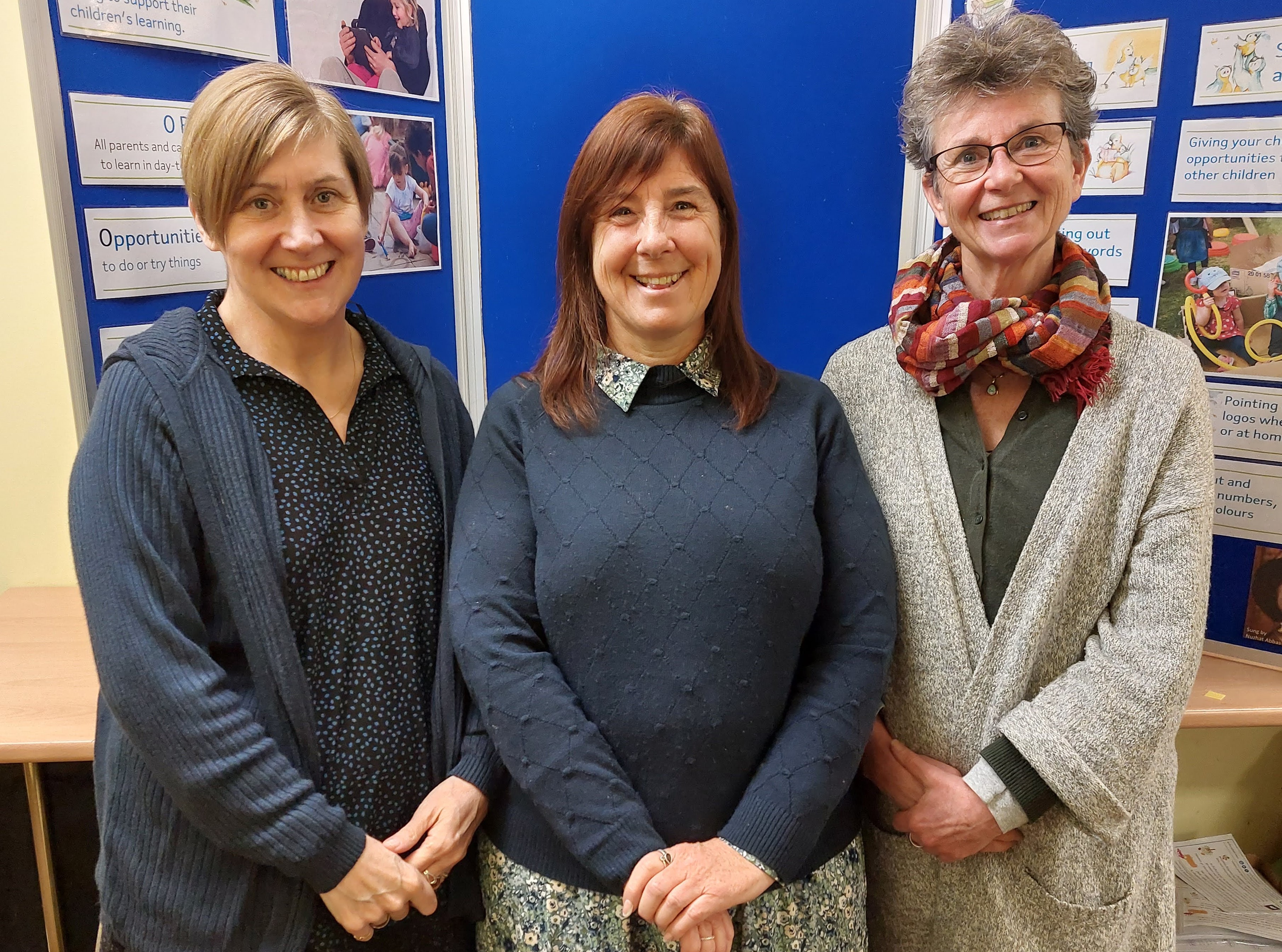 Hi, my name is Debbie Holmes, and I am Peeple’s Qualifications Manager, supporting the Peep Progression Pathway for parents (pictured between Peeple Training and Accreditation Manager Liz Ersoy and CEO Sally Smith)
Hi, my name is Debbie Holmes, and I am Peeple’s Qualifications Manager, supporting the Peep Progression Pathway for parents (pictured between Peeple Training and Accreditation Manager Liz Ersoy and CEO Sally Smith)
My Peep journey began in 2010 when I became a Children’s Centre teacher in Leicester, and it has shaped and formed my practice ever since. I became a Peep practitioner delivering groups to parents, carers and their children from birth to 5 years in different schools, centres and shelters. I soon saw the power and magic behind the Peep Learning Together Programme in supporting parents to understand their child’s communication and development needs.
The simple yet key messages delivered in Peep sessions show parents that everything they do with their children from birth (and even before, through the Peep Antenatal Programme) supports brain development, language acquisition and secure attachments at a time when their children’s capacity to learn is optimal.
The power of Peep groups is the delivery of simple, high impact messages, highlighting children’s learning through observation, and sharing these observations with parents. Soon parents were able to spot learning in everyday situations for themselves, and from this point they could build up a picture of their child’s preferred learning styles, interests and strengths whilst also developing their child’s language and skills effortlessly.
Many of the parents attending Peep sessions made amazing memory books or learning journals to share with their children and record their joint learning journey. This led naturally into supporting parents back into their own education, as their Peep journals could be used in the parent accreditation that we offer through our Peep Progression Pathway - nationally recognised units which cover three qualification levels for parents and carers as learners, and which formally recognises the learning which is already occurring within a Peep session.
My job as practitioner was to guide parents on this journey. It is a very humbling experience, watching a parent and child grow and learn together. This passion continued with me when I returned to teaching in schools, where I introduced Peep groups to support the transition for parents and their children who were starting school. I wish I had known what I know now when my children were young!
When I saw the role with Peeple for Qualifications Manager I was so excited to be a part of its development and growth, and even more excited to be welcomed on board. Every parent wants the best for their child, but there is no manual attached at birth! Peep offers a supportive non-judgmental environment where parents can learn how to support their children and connect with peers who they often form lasting friendships with. Look out for groups near you in family hubs, libraries, schools and other community venues, and if there aren’t any, ask your Local Authority.
We are very proud of our updated Peep Progression Pathway, which supports parents to achieve qualifications at three levels - up to level 5 in Scotland and level 2 in the rest of the UK - a gateway into childcare and other related courses and jobs. Get in touch with me to find out more about how to continue your learning journey with Peep!
email: pathway@peeple.org.uk | website: Peep Progression Pathway | Peep Progression Pathway Training for Practitioners
Blog: Supporting the Peep Progression Pathway in England
Feature box colour:
Side Quote Color:
News: Narrowing the attainment gap - Peep Learning Together Study update
Improving children's outcomes...
We already knew that overall the Learning Together Study found that the Peep Learning Together Programme made a positive difference of an additional two‑months progress over a five-month period to children’s early literacy development.
... and narrowing the attainment gap:
However, further analysis has shown that the Programme made the greatest difference to children eligible for Early Years Pupil Premium, who made an additional four months progress in core language skills and in communication, and three months additional progress in early literacy development.
The Learning Together Study was a Randomised Controlled Trial (RCT) of a 20-week version of the Peep Learning Together Programme for three-year olds. It was carried out by Queen’s University Belfast and funded by the Education Endowment Foundation, involving 1447 families from 139 nursery settings across England.
The Peep Learning Together Programme is based on evidence that the quality of learning opportunities within a child’s home environment increases their chances of doing well at school and beyond.
News: Narrowing the attainment gap - Learning Together Study update
Feature box colour:
Side Quote Color:
Peep tips - parenting, play, music etc (non-topic specific)
Here are some of our Peep 'tips' or messages that don't relate to a specific topic but that you might want to share with parents via your local facebook or whatsapp group etc. Click on the PNG image or link and it will open in a new tab/ window, where you can right-click to save/ download it. Let us know if you have other suggestions: support@peeple.org.uk or in our practitioner facebook group
Being a parent or carer:
 - Simple activities best for child development quote
- Simple activities best for child development quote
 - How to support school readiness over summer
- How to support school readiness over summer
-  5 things you'll find at a Peep group
5 things you'll find at a Peep group
Play:
 - Learning together through play
- Learning together through play
Music and singing:
 - Favourite songs to sing with babies
- Favourite songs to sing with babies
 - Action songs using large movements
- Action songs using large movements
Strand tips:
Feature box colour:
Side Quote Color:
Baby Peep course - suggested topics
As always - you can choose which and how many LTP topics you include in your Peep sessions, and which order you deliver them in - but here are some ideas to get you started (with link to topic page). We'd recommend adding an introductory session or combining info from the introductory session plan, and possibly the ORIM topic, if your families are new to Peep.
A six-week course for 0 - 12 month old babies:
- PSED: Making the most of routines
- EL: Sharing books with babies
- EM: Maths in songs and rhymes
- CL: Finding a voice
- CL: The very first language
- HPD: Early sensory experiences
A six-week course for 0 - 6 month old babies:
Thanks to Kensington and Chelsea Family Hub, known there as Baby Zone Peep. (Suggested tips or TDAHs in brackets)
- PSED: Knowing me, knowing you
(Baby states photos & Peep Tips/ Taking time to pause… Peep tips) - PSED: The importance of names
(TDAH Making a name card or placemat) - PSED: Making the most of routines
(TDAH Routines and making a bed for a toy) - EL: Sharing books with babies
(TDAH Sharing books with baby, Tip: sharing books, cuddly etc) - CL: The very first language
(TDAH copying games, TDAH making sensory bottle, TDAH Faces in lids; Tips: learn about being loved/ Cuddling and holding…) - PSED Babies making choices: Treasure baskets
(TDAH posting box)
A six-week course for 6 - 12 month old babies:
Thanks to Kensington and Chelsea Family Hub, known there as Baby Zone Plus Peep
- PSED: Becoming me
- CL: Finding a voice
- EL: Sharing books with babies
- HPD: Babies on the move
- HPD: Early sensory experiences
- HPD: Food for life
Feature box colour:
Side Quote Color:
Early Help Peep: Nottingham
Thanks to Charlotte Haigh, Early Learning Specialist, and colleagues for sharing how they use Peep within their Early Help teams and Children’s Centres in Nottingham.
 "In Nottingham City, we use the Peep Learning Together Programme (LTP) as a targeted intervention to support families within the city. Our groups run for 12 weeks. We have established four Peep groups, each of which runs for 12 weeks:
"In Nottingham City, we use the Peep Learning Together Programme (LTP) as a targeted intervention to support families within the city. Our groups run for 12 weeks. We have established four Peep groups, each of which runs for 12 weeks:
- Watch Me Grow for families with a child 0-9 months,
- Inbetweenies for families with a child 9-18 months,
- Getting Ready for Nursery for families with children age 18 months – 2+ years, and
- Chatter Matters which focuses primarily on communication and language.
Parents complete an evaluation at the end of the course, but also give verbal feedback about things they’ve noticed or tried that week, at the start of each session. Here are some of the things that we’ve heard from families and practitioners:
increasing parents’ confidence and awareness about supporting their children’s development:
Through attending one of our Peep Getting Ready for Nursery courses, parents have reported that they feel a lot more confident in telling stories and singing with their children. One Mum shared that she feels a lot more confident singing with her children at home since attending one of our Peep groups, and her partner has noticed that she sings a lot more with her youngest two children than she did with her eldest. This mum still feels too self-conscious to actively take part in singing during the session, but she and her children spend much more time together at home than in a weekly group, so singing with them at home is where the real difference is made.
Our feedback has also shown that parents are a lot more aware of the importance of mark making, and provide mark making activities more frequently within the home.
In our recent courses, 80% of parents showed an improvement in their confidence to support their child’s learning and development. 72% of families have increased the frequency of mark making activities, and of playing with letters and numbers at home. Over the past few months, 61 children have been tracked in either Communication & Language, Physical development or Personal social and emotional development. All 61 children have shown progress in their development over the 12 week course.
noticing changes and thinking about next steps:
 At the start of the Peep course we encourage parents to complete an ‘I can…’ flower so they increase their awareness of what their child can do, and where they are in terms of their developmental milestones. Once these have been completed practitioners are able to plan activities and sessions to support both parents and children in reaching their milestones. Parents are also encouraged at the beginning of each session to feedback on how they found the previous session and how they got on with their ‘Things to do at home’ activity.
At the start of the Peep course we encourage parents to complete an ‘I can…’ flower so they increase their awareness of what their child can do, and where they are in terms of their developmental milestones. Once these have been completed practitioners are able to plan activities and sessions to support both parents and children in reaching their milestones. Parents are also encouraged at the beginning of each session to feedback on how they found the previous session and how they got on with their ‘Things to do at home’ activity.
One parent has noticed that, since attending one of our Peep groups, her child has started to say words and to count, and has become increasingly more confident to explore the activities available. At the beginning of the course, this child was non-speaking, wasn’t interacting with other children or adults, and gave very little eye contact. He has started to respond during singing time and sometimes joins in with actions, and he is now also giving eye contact when practitioners interact with him.
building relationships – families, practitioners and other professionals:
Parents have fed back that their children have built relationships with other children of a similar age. One mum, who that shared she suffers from anxiety, now looks forward to attending the group each week. Practitioners have worked with mum to help her rationalise her thoughts and prioritise tasks to allow her to feel less anxious. In doing so, mum is now more confident to bring her children to the group on her own.
Providing the Peep programme on a weekly basis for 12 weeks has enabled practitioners to build good relationships with both parents and children. Practitioners are able to address behaviours that a few parents in the group are experiencing. For example, in one of our Getting Ready for Nursery groups practitioners noticed there was a lot of copying behaviours and children were throwing toys/resources. As a result, practitioners modelled to parents how to encourage desirable behaviour and communicate with their children to let them know what they want them to do instead. Practitioners have since commented that they feel the parents within the group have grown in confidence and support each other, as well as asking for help and advice when needed.
During our Watch Me Grow course we look at the topic ‘Food for life’. During this session we invite a health visitor along, to support parents with the latest public health advice on weaning and healthy food choices. Practitioners have found that by partnership working, particularly in the Watch Me Grow groups, parents are less anxious in terms of accessing services and have grown in confidence when it comes to making their own choices for their children.
things we learned – reducing barriers for families:
- Peek into Peep: In Nottingham we run a ‘Peek into Peep’ session in areas where engagement is low or where we don’t receive many referrals. A Peek into Peep session gives parents the opportunity to meet the practitioners that will be delivering the programme beforehand and see what they can expect from a Peep session. This enables families to feel less anxious when they attend the full course, as they have already met the practitioners and know what to expect when they walk in. We have found this to be extremely beneficial for anxious parents. It also allows for partner agencies e.g. midwives, health visitors, social workers etc, to attend the session with their families to see if it is something they would benefit from.
- Tailor the group to the needs of the families: In Nottingham we have a rough plan of the 12 topics we are going to cover throughout the programme. However, once practitioners have gotten to know the families that attend, they are able to adapt the programme to suit the families. In some of our groups, rather than practitioners planning a child development topic for every week, we let the parents choose what they would like to cover the following week, by giving them opportunities to look at the topics in the Peep Learning Together folder.
- Having a session routine: This supports both parents and children to understand what to expect during the session, and the transition between all elements. We have found that the routine we use does vary between groups and we are happy to adjust and adapt dependent on the needs of the families.
- Having a waiting list and inviting a set number of families per course: this enables practitioners to really get to know the parents and children they are delivering to. This has allowed us to incorporate additional services into the course to support parents, depending on their needs, or to signpost them on to other local services.
Feature box colour:
find out more or book training
tel 01865 397 970
training@peeple.org.uk
> information briefing
> in-house training
> training courses
> sign up to our e-newsletter


